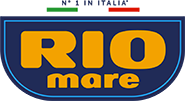Personal growth stands as a cornerstone in the narrative of every individual’s life. It embodies the continuous pursuit of knowledge and skills through lifelong learning, which opens doors to new opportunities and experiences. Embracing this commitment not only enriches our intellect but also enhances our ability to adapt to various situations we may encounter.
At the heart of personal development lies the practice of self-improvement. This involves setting goals, recognizing areas for enhancement, and actively engaging in activities that promote our well-being. Through targeted efforts, we cultivate resilience and self-efficacy, allowing us to confront challenges with confidence.
Equally important is self-reflection, a process that encourages introspection and understanding of one’s thoughts and emotions. By taking time to evaluate our experiences, we gain insights that guide us in our quest for growth. This thoughtful examination not only informs our decisions but also helps to align our actions with our core values, paving the way for a more fulfilled life.
Identifying Personal Growth Goals for a Fulfilling Life
Setting personal growth goals is a powerful means to enhance your overall well-being and satisfaction. The process begins with self-reflection, where one takes time to evaluate their values, aspirations, and current achievements. This self-assessment can reveal patterns in behavior and decision-making that may need adjustment for better alignment with one’s vision of a fulfilling life.
Incorporating the concept of lifelong learning, individuals are encouraged to seek knowledge and experiences that foster growth. This might involve pursuing new hobbies, engaging in educational programs, or exploring areas that spark curiosity. By expanding one’s horizons, the potential for self-improvement flourishes, enabling a deeper connection with personal values and goals.
It’s essential to define specific, measurable, attainable, relevant, and time-bound (SMART) goals that resonate with your personal vision. Whether focusing on developing emotional intelligence, improving physical health, or enhancing professional skills, clear objectives provide direction and motivation. Regularly revisiting and adjusting these goals aids in maintaining momentum and ensures continued alignment with evolving aspirations.
Remember, personal growth is not a destination but a continuous process. By engaging in self-reflection and committing to lifelong learning, individuals can set meaningful goals that not only enrich their lives but also contribute to the well-being of those around them. For further insights, you can explore resources available at https://juliansummerhayes.com/.
Practical Strategies to Overcome Challenges in Personal Development
Engaging in self-improvement can often bring about various obstacles. To address these challenges effectively, consider the following strategies:
- Set realistic expectations: Acknowledge that growth takes time. Break down larger goals into manageable steps to maintain motivation.
- Practice self-reflection: Regularly assess your progress. Journaling can help identify patterns and areas for enhancement. This process deepens understanding of personal experiences.
- Create a supportive environment: Surround yourself with individuals who encourage positive changes. Share your goals with friends or relatives who support your aspirations.
Consistent learning enhances personal development. Here are additional tactics to integrate lifelong learning into your routine:
- Read widely: Explore books and articles across diverse subjects. This expands knowledge and offers fresh perspectives.
- Attend workshops and seminars: Engaging in structured learning experiences can provide valuable insights and foster networking opportunities.
- Seek feedback: Constructive criticism from trusted sources can pinpoint areas needing attention and improvement.
Remember to be patient with yourself. Personal development is a continuous process that involves trial and error. Staying committed to your growth path will lead to lasting improvements.
Measuring Progress: Tools and Techniques for Self-Assessment
Measuring growth in personal development is integral to self-improvement. Various tools and techniques can facilitate self-reflection, allowing individuals to gauge their progress over time. One effective method is the use of journals, where reflections on daily experiences, accomplishments, and challenges can be documented. This practice encourages a deeper understanding of personal growth trajectories.
Another valuable technique is self-assessment questionnaires. These tools typically consist of scaled questions that prompt individuals to evaluate their skills and attributes. By regularly completing these assessments, one can identify areas of strength and those needing further attention, thereby supporting lifelong learning.
Setting measurable goals enhances the process of self-assessment. SMART (Specific, Measurable, Achievable, Relevant, Time-bound) criteria can be applied to personal goals, allowing for clear metrics of success. Tracking progress against these criteria provides tangible evidence of development and motivates ongoing efforts.
Feedback from trusted peers or mentors is also instrumental. Engaging in open discussions about personal growth experiences offers fresh perspectives and insights. This constructive feedback can challenge existing beliefs and foster opportunities for deeper self-reflection.
Finally, integrating regular review sessions into personal routines ensures consistent self-assessment. Allocating time to evaluate achievements and setbacks encourages a proactive approach to personal growth, allowing for adjustments to goals and strategies as necessary.
The Impact of Personal Growth on Relationships and Career Success
The process of self-improvement plays a significant role in shaping our relationships and enhancing career achievements. As individuals commit to developing their skills and understanding, they naturally cultivate deeper connections with others. This growth allows for better communication and empathy, essential components of healthy interpersonal dynamics.
In professional settings, personal growth translates to increased confidence and adaptability. By actively engaging in self-reflection, individuals can identify areas for improvement, leading to more strategic decision-making and enhanced creativity. This growth mindset not only benefits personal ambition but also contributes to teamwork, as individuals become more approachable and collaborative.
Relationships flourish when individuals are committed to their own development. By overcoming challenges and embracing change, partners can create a supportive environment that prioritizes mutual growth. This dynamic promotes trust and strengthens bonds, forming a foundation for long-lasting connections.
Career success is closely linked to the ability to learn from experiences and reflect on personal performance. Those who prioritize personal growth are often more resilient, turning obstacles into opportunities. This proactive attitude enables individuals to pursue promotions and new roles with confidence, showcasing their commitment to advancing not only their careers but also their personal lives.
